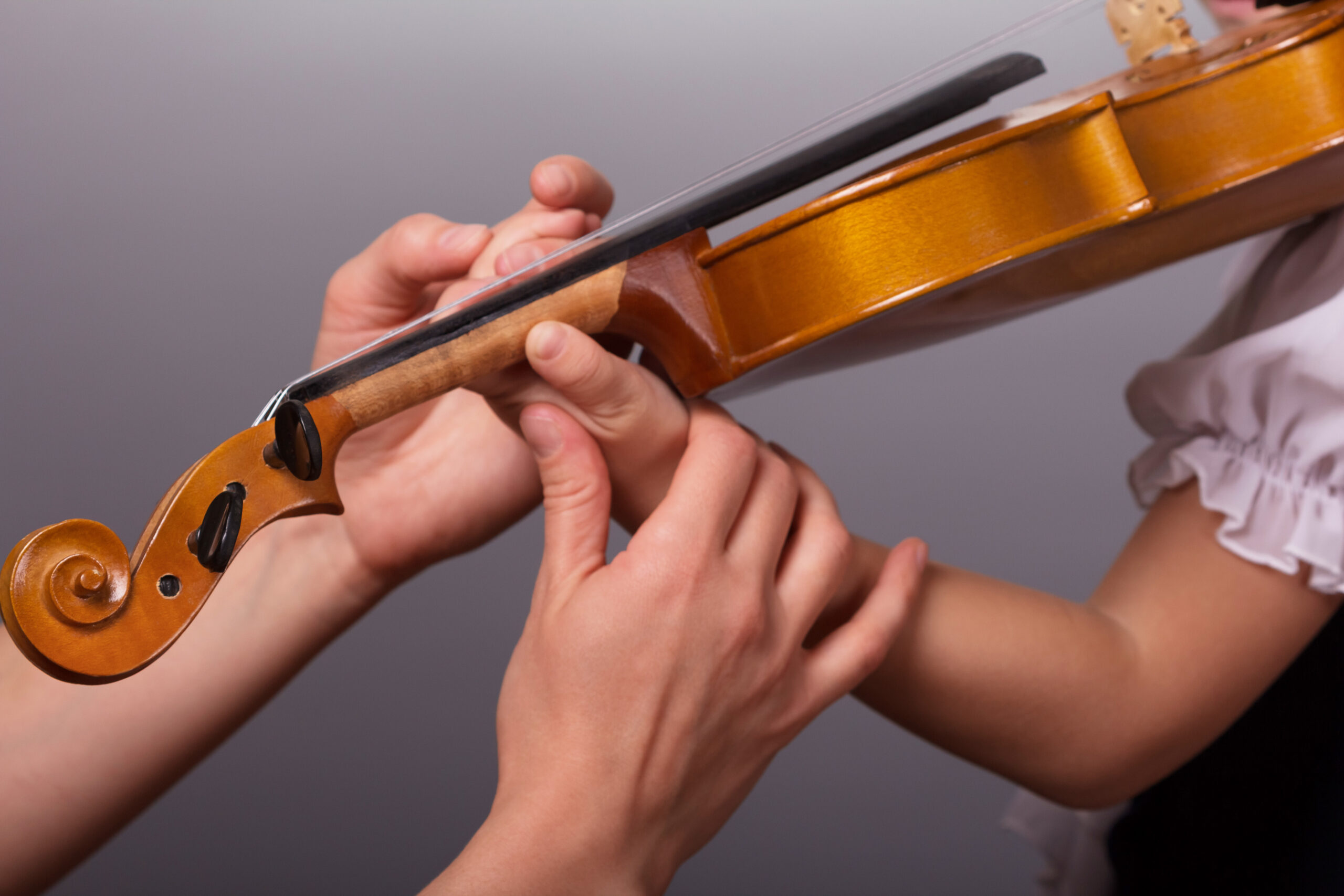Updated: 2/4/2023
A great music teacher must possess many important qualities. Different types of personality traits dictate if you have a good teacher, and monitoring those traits will help you navigate finding a right fit. For us, we have defined 5 Key Traits that define a great music teacher. Those traits are:
- Genuine love for music
- Good communication skills
- Patience
- Positive Attitude
- Skill gap knowledge
- Variety of tools
We hope this list helps you make a great connection for your musical career or hobby.
Great Music Teachers have a genuine love for music
A good music teacher must first love the art that they teach. It is crucial for a teacher to express love towards music as expertise in music alone is not enough to inspire students. Pupils will study better with teachers who are enthusiastic about the subject. This will not only encourage students to practice, but will help them be more committed to their lessons.
Great Music Teachers have good communication skills
Communication between a teacher and a student is crucial for the student to learn effectively. Explaining the intricate ideas of music can be a daunting task for some, but a good music teacher should be able to simplify these subjects and make them easy to understand and learn for the student. A teacher should be an approachable listener that students can contact easily to ask questions. Good communication will help the student learn tremendously in addition to assuring them they will have a mentor to help them navigate the vast world of music.
Great Music Teachers have Patience
A good music teacher must possess and demonstrate an abundance of patience. They must understand that different students develop their musical skills at different rates, and should be willing to attend to each one’s needs.
Some students may take longer to understand certain concepts than others, but a great music teacher is aware of this, and will take the time to explain them until the student has fully grasped the topic.
Furthermore, an effective teacher will always take the time to offer the student constructive criticism after listening to them play their instrument. They take the time to identify areas that the student needs to improve on and works with them to achieve their goal.
Great Music Teachers have a positive attitude
A teacher’s attitude generally has a tremendous influence on how well a pupil learns and how much they enjoy doing so. A good teacher should be positive and encouraging, but should also have the ability to balance out critiques and compliments.
A teacher’s positive attitude and encouraging words play a major part in the student’s overall confidence of their musical skills. A teacher that remains positive will nurture and motivate their student.
Knowledge of the capabilities of their students
A good teacher will always be aware of and keep in mind the capabilities of their students. In turn, the students will not become discouraged if excessively pushed, and will not learn at a pace too slow for them. It is important to understand that practicing to be perfect is not the best way to practice – and if you feel that is what your are being pushed into, you can make a change sooner rather than later!
Knowing the capabilities of a student will allow the teacher to select an appropriate piece for them to learn that will challenge them without overwhelming them. This is extremely important because if a piece is too challenging for a student, it will only result in frustration and may affect one’s confidence. Similarly, a piece that is too easy for the student will not challenge the student into learning, and will result in them learning at pace that does not do justice to the student’s learning abilities.
Variety of Tools
A good music teacher will have a variety of tools at their disposal to help maintain your body of work. In this sense, your body of work equates to the planning documentation and notations acquired from each lesson that help maintain your progress. Tools can be:
- Practice logs, journals, and lesson plans
- Outlines, assessments, timelines, and schedules
- Applications that assist with the organization of your overall routine
Having good structure to your practice is important, so teachers who have applications to maintain your documentation is helpful. This can include things like Zoom Lessons, Tuned Into Violin Practice Logs, or apps like Tom Play that provide backing track and metronome capability. Finding a teacher in tune with technology can help enhance your capabilities as well as help in times that might require lessons to go online. Check out this video on how to set up for a Zoom music lesson!



